When you mention the Xbox Live Indie Games service to someone who's unfamiliar with it, the common reaction is that it is home to various controller massage programs. While it may be true that there are many applications that don't necessarily qualify as games, there are also a number of games on the service, some of which rival or even best products from bigger developers. Shooting game fans have some standout titles on the service like Shoot 1up and Beat Hazard, both of which will be ported to PSN and PC, respectively. Action fans have some offbeat and fun titles like Angry Barry and Twin Blades, while adventure gamers have Soul and Decay. Platform fans have Arkedo Games presents Jump and Arkedo Games presents Pixel, puzzle fans have Echoes, and those looking for non-traditional sports have Inside Lacrosse's College Lacrosse 2010. Of course, discussing the standout titles of the Indie Games service and not mentioning I MAED A GAM3 W1TH Z0MBIES 1NIT!!!1 would be blasphemous to readers. Among the snake clones, tower defense titles, and Xbox Avatar games in the service, however, there haven't been too many attempts to create an indie RPG. Developer Zeboyd Games met that need with Breath of Death VII: The Beginning, a game that serves as both a parody and homage to RPGs of the past while becoming a very good game on its own merits.
The plot, while original, already begins to give you the sense that you'll be in for many parodies of common video game themes. In the year 20XX, the world was dropped into war. A desperate nation with a powerful weapon ended the war and all human life. From the ashes of that war came a new civilization of ghosts, zombies and monsters determined to carry on with their medieval society. Even in a world filled with peaceful monsters, evil still prevails because of other monsters who are determined to continue bringing chaos to the world. As Dem, a noble skeleton knight, your job is to rid the world of this evil and help your motley crew of a zombie prince, technically proficient vampire, and an adventure-seeking ghost find answers about the long-dead civilization.
Once you're past the opening cinematic and main menu, you'll immediately notice that the game pays tribute to classic RPG console games like Dragon Warrior with the use of the top-down view for the overworld map, towns and dungeons. The battle system is also reminiscent of that game as well as Earthbound with fights that only show the hero's stats, commands and full pictures of the monsters that only move when hit, and movement is restricted to the four cardinal directions. The system is minimalist in nature, providing everything you need to know for a fight and nothing more, though you do have some variation in your attacks and magic spells. Other common RPG traits are to be expected here as well, such as save points that heal all of your stats, saving at inns in isolated towns, and the dreaded random battles you can expect to have in dungeons and on the overworld map.
One of the other things you'll also notice about the game is its use of humor. As mentioned earlier, the opening cinematic uses the familiar apocalypse setting, the medieval setting, and a sly allusion to many old NES games' reference to the unknown future through the use of the year 20XX. Even the title screen mashes together some popular RPG titles to make itself sound important and contradictory.
Your character may never talk, but he does think, and more often than not, those thoughts end up being contradictory to what others around him want to do, making him a loner of a hero who's burdened with having others around him against his wishes. None of that is more evident than the fact that his party members often force themselves into the party instead of you being told that they accept your invitation to join. Talk to the townspeople, and you'll hear them spout advice, like the fact that bosses can only be affected by direct damage, making your binding spells useless, or that they wish they were in areas you've already been through since the monsters there are much easier to kill.
Your own party will contribute to the madness by striking up conversations about the origin of town names or singing their own rendition of the American Pokémon theme song. Even checking out everyday objects produces humorous results, such as an explanation about why it would be wrong to open treasure chests in someone else's house or that a tombstone in a graveyard has copyright text on it. With all of this coupled with plenty of game references, both subtle and obvious, there isn't a moment in Breath of Death VII when the developers didn't want you to laugh.
As much as the game sticks to the RPG ideals of old, it also goes ahead and improves on a few things that people hated from that particular game genre. The battle system may not be special, but it does add the element of combos to the mix which, in turn, means being able to execute devastating hits. At the end of every battle, all of the party's HP gets completely refilled, and some MP gets added back as well. This health refill system ensures that everyone, even those who have fallen in combat, gets experience for the fight. Leveling up is a quicker experience, thanks to the low amount of experience needed per level and the large amounts of experience gained per fight. Leveling up also gives you some customization because every level gained gives you a choice between one of two bonuses beyond the standard stat upgrades. You can choose to add more HP to your party member or take a better magic spell.
The most welcome change is in the random battles. Checking on your status also brings up a counter that informs you of how many battles you could encounter in that particular dungeon area or overworld map. Once the counter hits zero, no more random encounters will occur until you traverse to the next area. This little element not only decreases the frustration factor of the game but also adds to your strategy for each dungeon. For example, you can decide to play the game normally and never look at the counter, or you can stay near a save point and initiate fight after fight until the counter is depleted, ensuring safe passage for the rest of the level. It is a smart feature, and for those who really loathe being interrupted every few steps, it is also a welcome option. Of course, if you still want to fight long after the counter hits zero, you're welcome to initiate fights for grinding purposes.
No matter how good a game is, it will never be perfect, and there is one thing people might take issue with concerning Breath of Death VII. This is a pretty short RPG. The developer's estimation of a four- to six-hour quest is right on the money, and even though there are two difficulty levels and a score-based mode to lengthen the game a bit, the total playtime doesn't match that of other RPGs, new or old. It doesn't make the game any less compelling, but those who want a long-lasting game won't really find it here.
The graphics adhere to the retro aesthetic very well. Everything in the game is composed of sprites, though it isn't very consistent in style. Most of the environments, for example, sport 8-bit style graphics, and the monsters and character portraits fluctuate between 8- and 16-bit styles. It isn't bad because the change is more subtle than it sounds, but those who are well-versed in the pixel-style graphics of those days will notice the differences. With animation limited to about four frames, it perfectly matches the animations seen in the old games. In fact, the only things that don't match the old games are the resolution, with 720p widescreen output, and the area transitions, which are much smoother than what you'd see in an old RPG. Overall, those who loved the look of old 8- and 16-bit games will love the look of Breath of Death VII.
Unlike the graphics, the sound is far from retro. The hit noises are the exact duplicates of what you would hear in the 8-bit era, and the music for the opening cinematic is also done in a retro style. The music is more akin to what you would find in a 32-bit RPG, and while it isn't composed with a grand orchestra in mind, it is still rich and perfectly suited to each situation.
Breath of Death VII: The Beginning is a real surprise. It's an RPG that feels like it was a classic from back in the day, but it doesn't have any RPG hang-ups. Gaming fans will certainly get a chuckle from the jokes and old gameplay mechanics, and while this game is a tad short in length, the insanely cheap price of $1 makes it a better investment than many RPGs with much larger price tags. Fans of classic games and RPGs will enjoy the title immensely, as will those who are tired of full-priced games that just don't feel exciting after the first hour of play. With a game this good, it is a shining example of what the Xbox Live Indie Games service can deliver.
Score: 9.0/10
More articles about Breath of Death VII: The Beginning: Reanimated


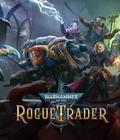
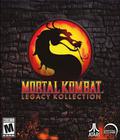
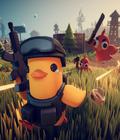
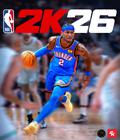



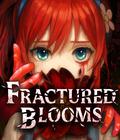

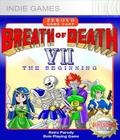 Resurrect the classic era of RPGs with the retro parody RPG, Breath of Death VII: The Beginning. Join Dem the Skeleton Knight and his allies as they explore an undead world in search of the secrets of the past.
Resurrect the classic era of RPGs with the retro parody RPG, Breath of Death VII: The Beginning. Join Dem the Skeleton Knight and his allies as they explore an undead world in search of the secrets of the past.














